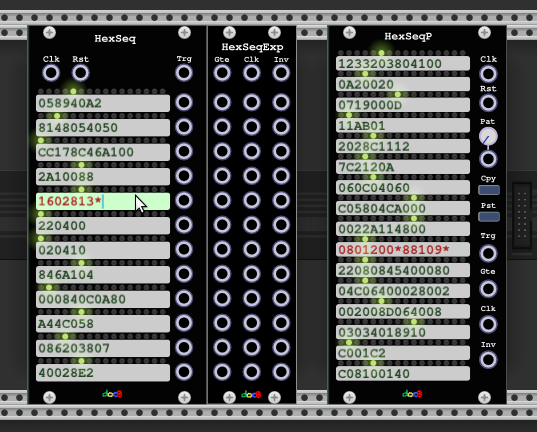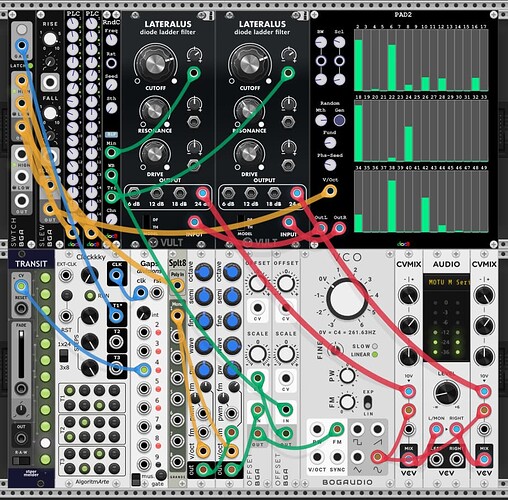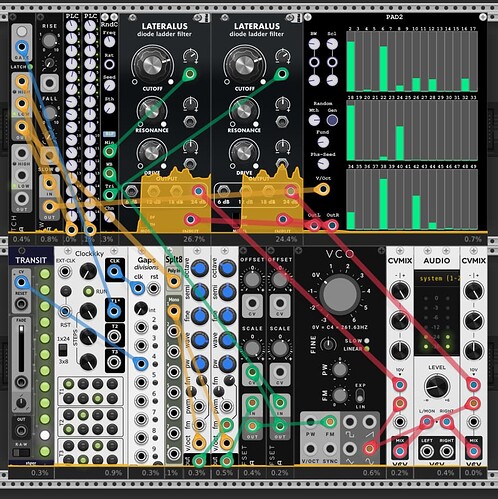hi, dbRackModules 2.0.4 is now in the Library.
ChangeLog:
HexSeq and HexSeqP

Features:
- the focused field is highlighted
- the dirty color is more red
- lower case input i.e. abcdef is now also supported
- an asterix (*) input char where the hexchar is randomly chosen every time it is hit
- copy/paste from menu does now work with inactive fields.
- added Randomize and Initialize
- new key commands for active fields:
- TAB: moves focus a field down without saving
- UP: saves/activates the field and moves focus a field up
- DOWN: saves/activates the field and moves focus a field down
- p: randomizes the current active field, P: additionally activates/save
- r: rotates the current active field one bit right, R: additionally activates/save
- l: rotates the current active field one bit left, L: additionally activates/save
- if the mouse is over the module the field 1-9 can be focused by pressing key 1-9
- Menu for setting the bit-density for the randomization
- Menus for setting the length range for the randomization
- Lights for the current Step - can be turned on/off in the menu
Fixes:
- ESC unfocuses and restores now the previous saved value
- live coding works now - the issue that the tracks were out of sync if the length of a track was changed is solved.
- paste from right click menu is checked now for a valid hex string
HexSeq
Features
- some factory presets (drum patterns) for learning purposes (Thanks to @FiroLFO)
- added polyphonic trigger output
- Added Expander HexSeqExp for
- gate outputs(reflects the current state of the bits)
- clock outputs (represents the incomming clock gate if bit is set)
- inverted output (fires a trigger if bit is zero)
HexSeqP
Features
- pattern select mode also via voltage configurable via menu (see manual)
- clock delay setting now in menu
- added gate, clock and inverted output (see HexSeq)
Fixes
- after ‘paste pattern’ the fields are updated/visible
Thanks to @FiroLFO for feature requests/testing and @DaveVenom for feature requests.


